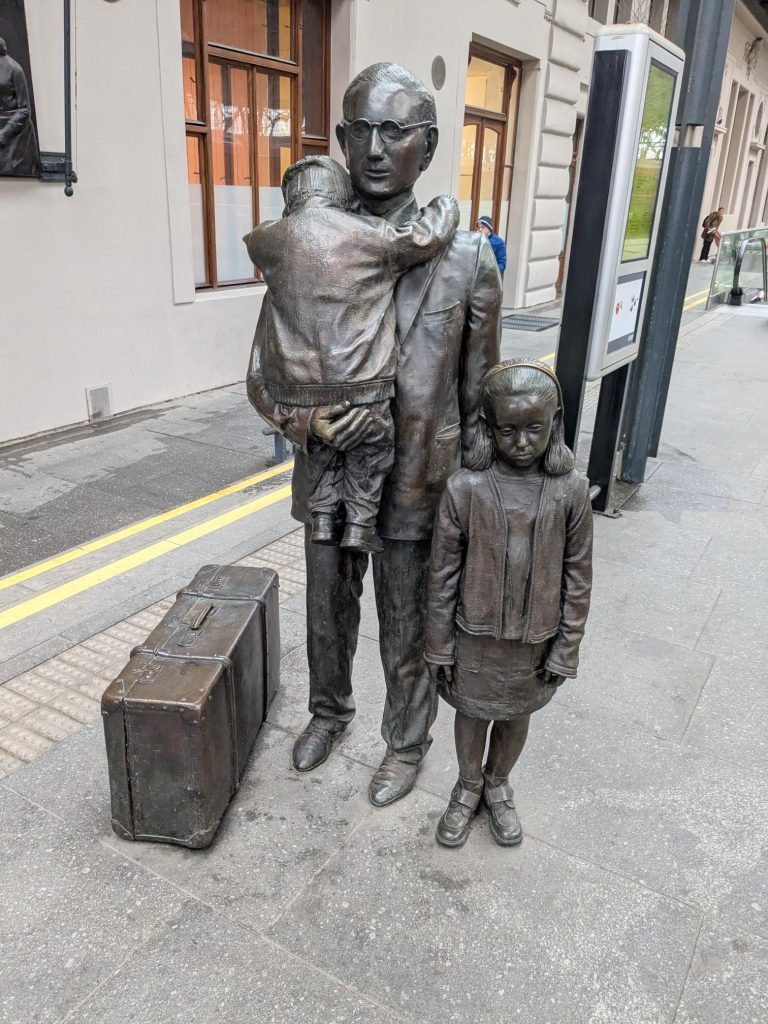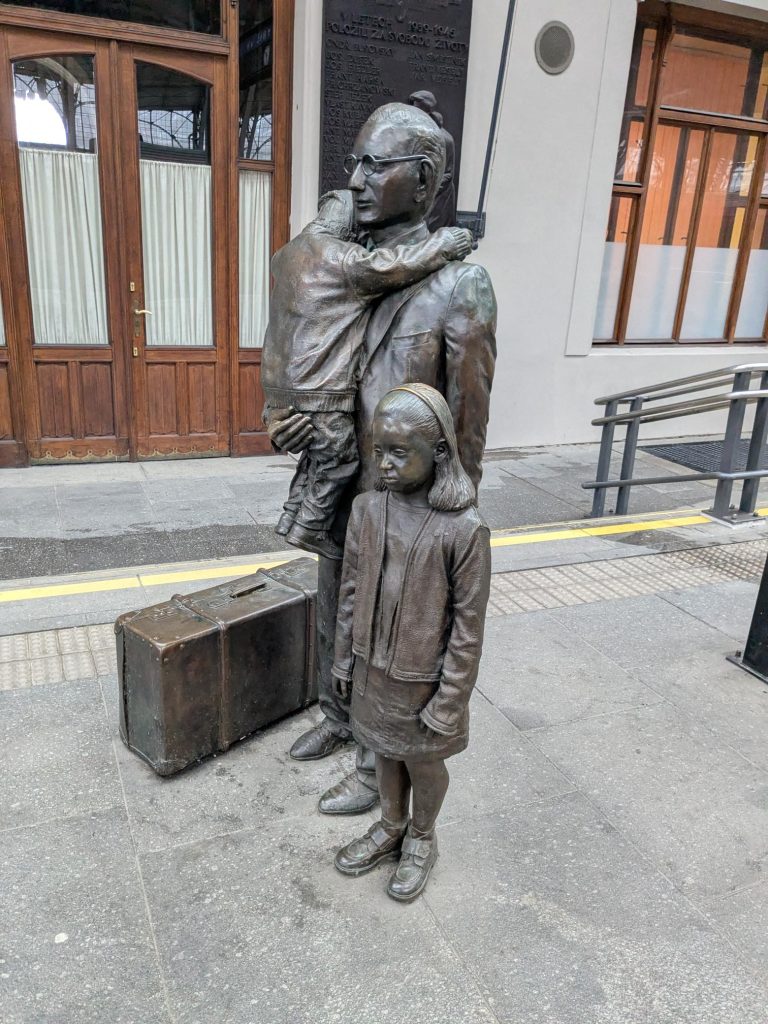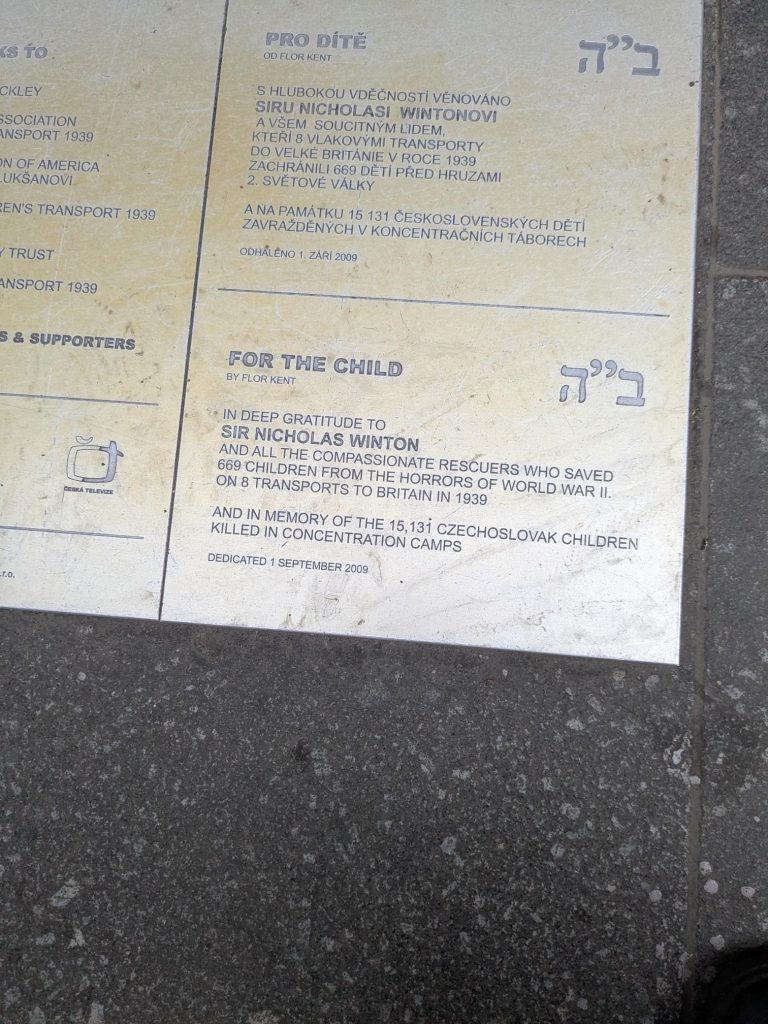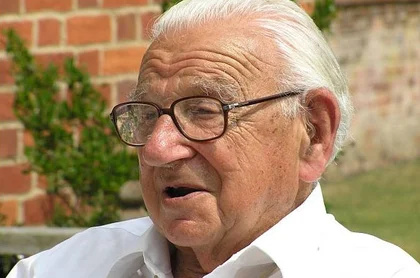Nicholas Winton and the Rescue of Czechoslovakian Children: A Legacy of Humanity

In the shadow of looming war and relentless persecution, one man’s extraordinary efforts provided a glimmer of hope to hundreds of children. Nicholas Winton, a stockbroker by trade, emerged as an unsung hero of humanity in the late 1930s by orchestrating the rescue of approximately 669 children from Nazi-occupied Czechoslovakia. His story, unknown for decades, is a testament to courage, compassion, and the power of ordinary individuals to make an extraordinary difference.
The Context: Europe on the Brink of War
The late 1930s were marked by the ominous rise of Nazi Germany. In 1938, under the Munich Pact, Germany annexed the Sudetenland, a region of Czechoslovakia rich in resources and predominantly German speaking. This event marked the beginning of the dismemberment of Czechoslovakia and left thousands of people—primarily Jews and political dissidents—displaced and desperate. Following Kristallnacht in November 1938, violence against Jews in Germany and Austria escalated, signalling the impending horrors of the Holocaust.

Amid this turmoil, the British Committee for Refugees from Czechoslovakia sought to assist the growing number of refugees. Nicholas Winton, at the urging of his friend Martin Blake, cancelled a ski vacation to visit Prague in December 1938. What he witnessed in the overcrowded refugee camps changed the course of his life.
The Birth of the Rescue Mission
Upon arriving in Prague, Winton encountered Doreen Wariner, a fellow humanitarian working tirelessly to support refugees. Convinced that the Nazis would soon occupy the rest of Czechoslovakia, Winton sprang into action. Inspired by the Kindertransport initiative—which had successfully relocated nearly 10,000 German and Austrian Jewish children to Britain—he resolved to establish a similar operation for Czechoslovakian children.

Operating under the banner of the British Committee for Refugees from Czechoslovakia, often without official authorization, Winton opened a “Children’s Section” office in central Prague. Parents desperate to save their children lined up by the thousands, hoping for a chance at survival. Back in London, Winton worked tirelessly to secure funding, navigate bureaucratic red tape, and find foster families willing to care for the children.
The Logistics of Hope
Organizing the rescue effort was a herculean task. The British government required a £50 guarantee per child to cover their eventual departure from Britain, as well as assurances that each child would have a foster family waiting. Winton juggled his day job at the Stock Exchange with late-night fundraising and logistical planning.
The first transport departed Prague on March 14, 1939, just one day before the German occupation of Bohemia and Moravia. This initial group of children travelled by plane to London. Subsequent transports, seven in total, took the more arduous route by train across Nazi-controlled Germany, followed by a ferry across the English Channel to Britain. The last train left Prague on August 2, 1939, just weeks before the outbreak of World War II. Tragically, a ninth transport scheduled for September 1, 1939—carrying over 250 children—was cancelled when Germany invaded Poland, and Britain declared war.
The Numbers and the Legacy
According to Winton’s meticulously kept scrapbook, 664 children were rescued through his efforts. Subsequent research for the 2002 documentary The Power of Good identified five additional children, bringing the official total to 669. Yet, the full extent of Winton’s impact remains uncertain, as some rescued children have yet to be identified.
The Rediscovery of a Hero

For nearly 50 years, Nicholas Winton’s heroic deeds remained unknown, even to his closest friends and family. It was not until 1988 that his wife, Grete, stumbled upon the scrapbook containing photos and records of the rescued children. This discovery brought Winton’s story to light, earning him recognition and gratitude from around the world.
Winton’s rescue efforts were celebrated in various ways. He received a letter of thanks from Ezer Weizman, the then-president of Israel, and was named an honorary citizen of Prague. In 2003, Queen Elizabeth II knighted him for his services to humanity. He passed away in 2015 at the age of 106, leaving behind a legacy that continues to inspire.
Interesting Facts About Nicholas Winton’s Rescue Mission
- The Train That Never Came: The cancelled September 1, 1939, transport remains a poignant reminder of the fragility of hope during wartime. Many of the children slated for that train likely perished in the Holocaust.
- The Power of a Scrapbook: Winton’s scrapbook, rediscovered in 1988, not only documented the names and photos of the children but also served as a crucial piece of evidence highlighting his efforts.
- A Quiet Hero: Despite his monumental achievements, Winton remained modest about his role, often deflecting praise by emphasizing the collective efforts of others involved in the rescue mission.
- The “British Schindler”: Although Winton disliked the comparison, he has often been referred to as the “British Schindler” due to the similarities between his rescue efforts and those of Oskar Schindler.
Key Lessons from Nicholas Winton’s Story
- One Person Can Make a Difference: Winton’s actions remind us that even a single individual can create ripples of change. His determination saved hundreds of lives and shaped generations.
- The Importance of Empathy: In the face of immense suffering, Winton chose to act, demonstrating that empathy combined with action can achieve remarkable results.
- The Power of Collaboration: Winton’s success depended on the cooperation of many—from refugee workers in Prague to British foster families. His story underscores the importance of collective effort in addressing humanitarian crises.
An Interactive Challenge: What Would You Do?
Imagine yourself in Winton’s shoes. Faced with an overwhelming humanitarian crisis, what steps would you take to make a difference? Reflect on the challenges he faced—fundraising, navigating bureaucracy, and finding support—and consider how you might approach similar situations today.
Keywords to Explore Further
- Nicholas Winton
- Kindertransport
- Holocaust rescues
- Prague refugee camps
- Humanitarian heroes
- British Committee for Refugees
- Kristallnacht
- Czechoslovakia 1939
The Legacy Lives On
Nicholas Winton’s story continues to resonate, reminding us of the enduring importance of compassion, courage, and action. His life exemplifies the profound impact one individual can have when they choose to stand against injustice. As we reflect on his legacy, let us draw inspiration to address the challenges of our time with the same unwavering determination and humanity.
